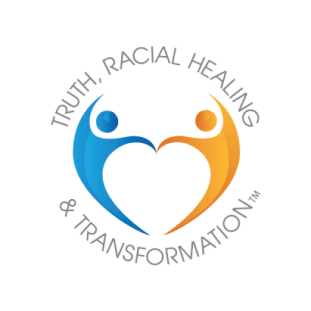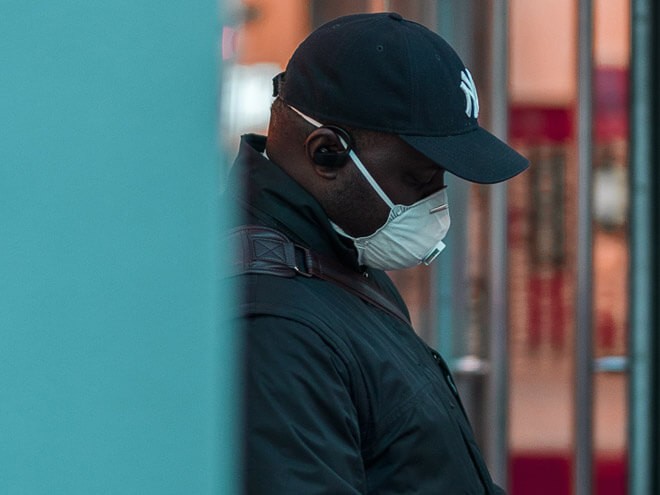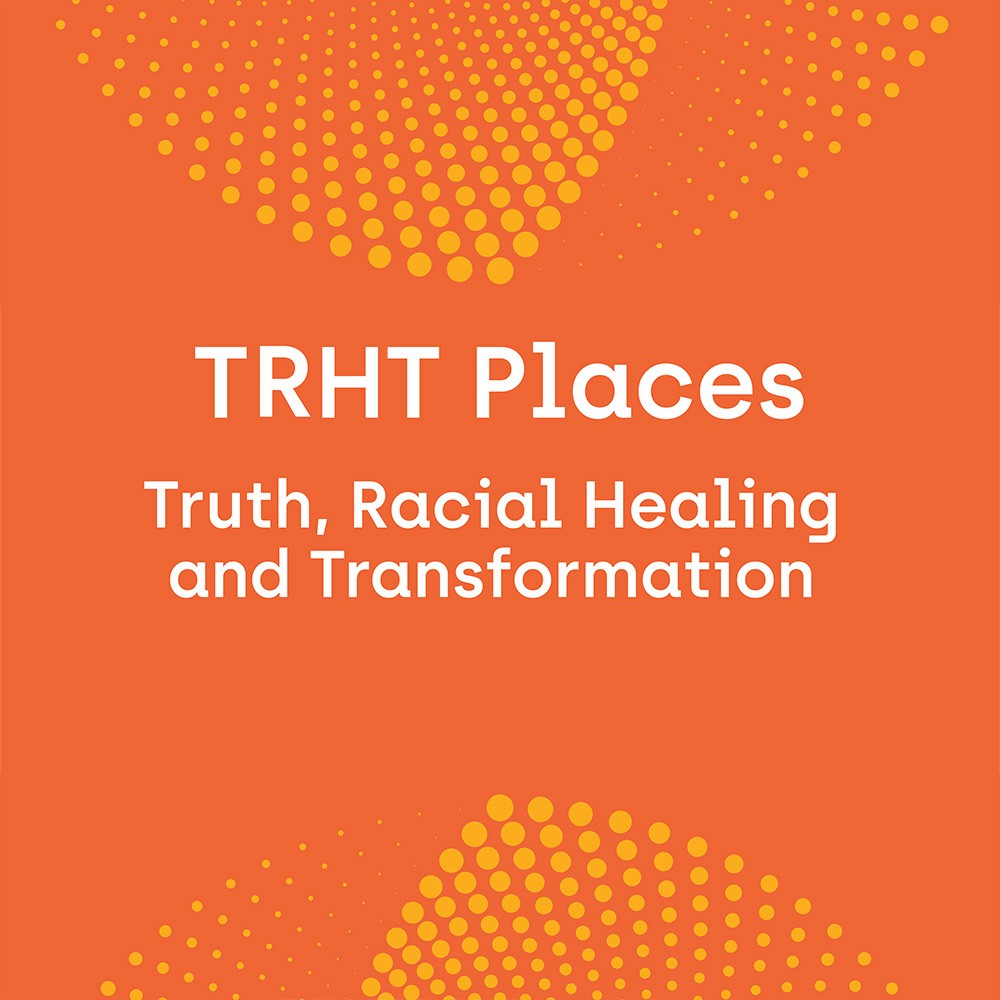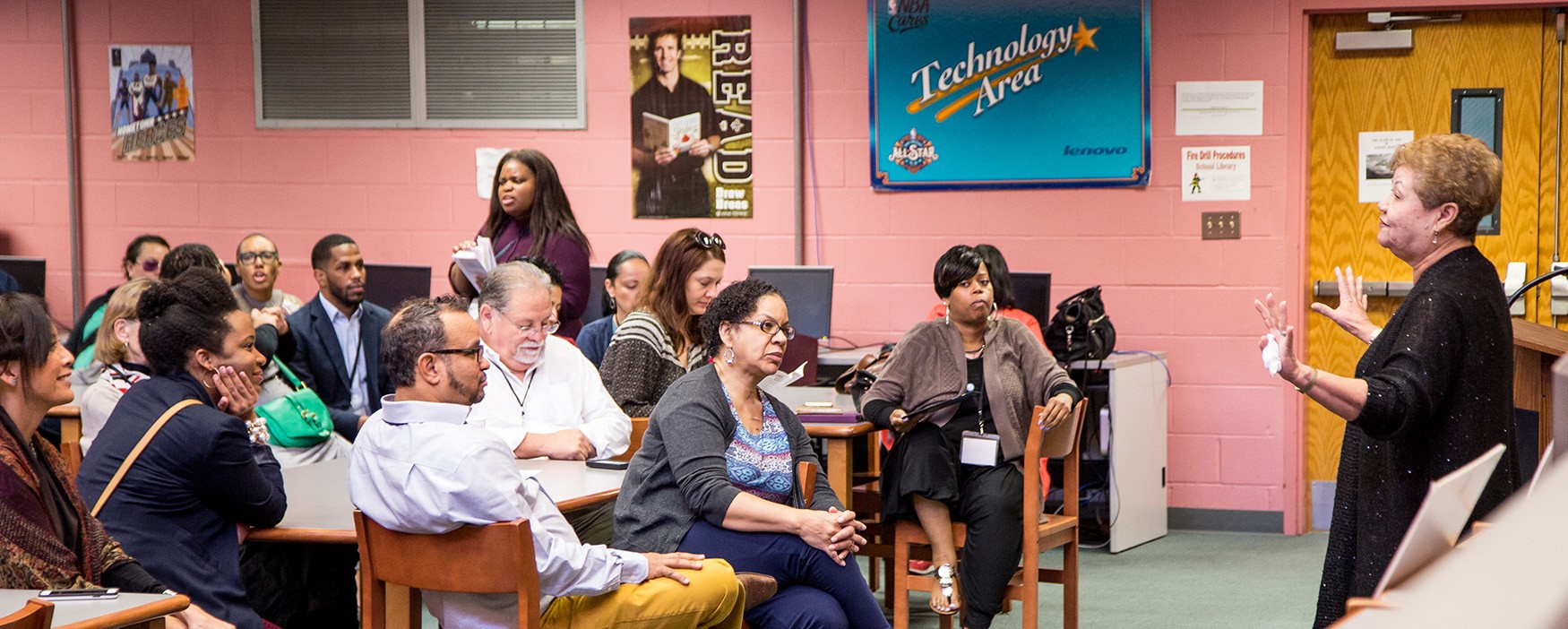Using Health Data to Improve the Quality of Life in Communities of Color Across the Country by Fostering a More Equitable Pandemic Recovery
Overview.
It is no accident that the devastation of COVID-19 has hit communities of color the hardest. Across the country, these are the same groups facing steep systemic barriers to essential opportunities—from a livable income, affordable housing, and food security to access to neighborhoods that are safe and thriving. Left unchecked, disasters like the pandemic only make existing disparities worse.
Leveraging HOPE was launched to address state, county, and local equity. NCHE worked with ten organizations to represent the ground efforts to inform, train, mobilize, and equip communities to address challenges, including environmental justice, racial equity, education, health, housing, safety, and many other critical issues.
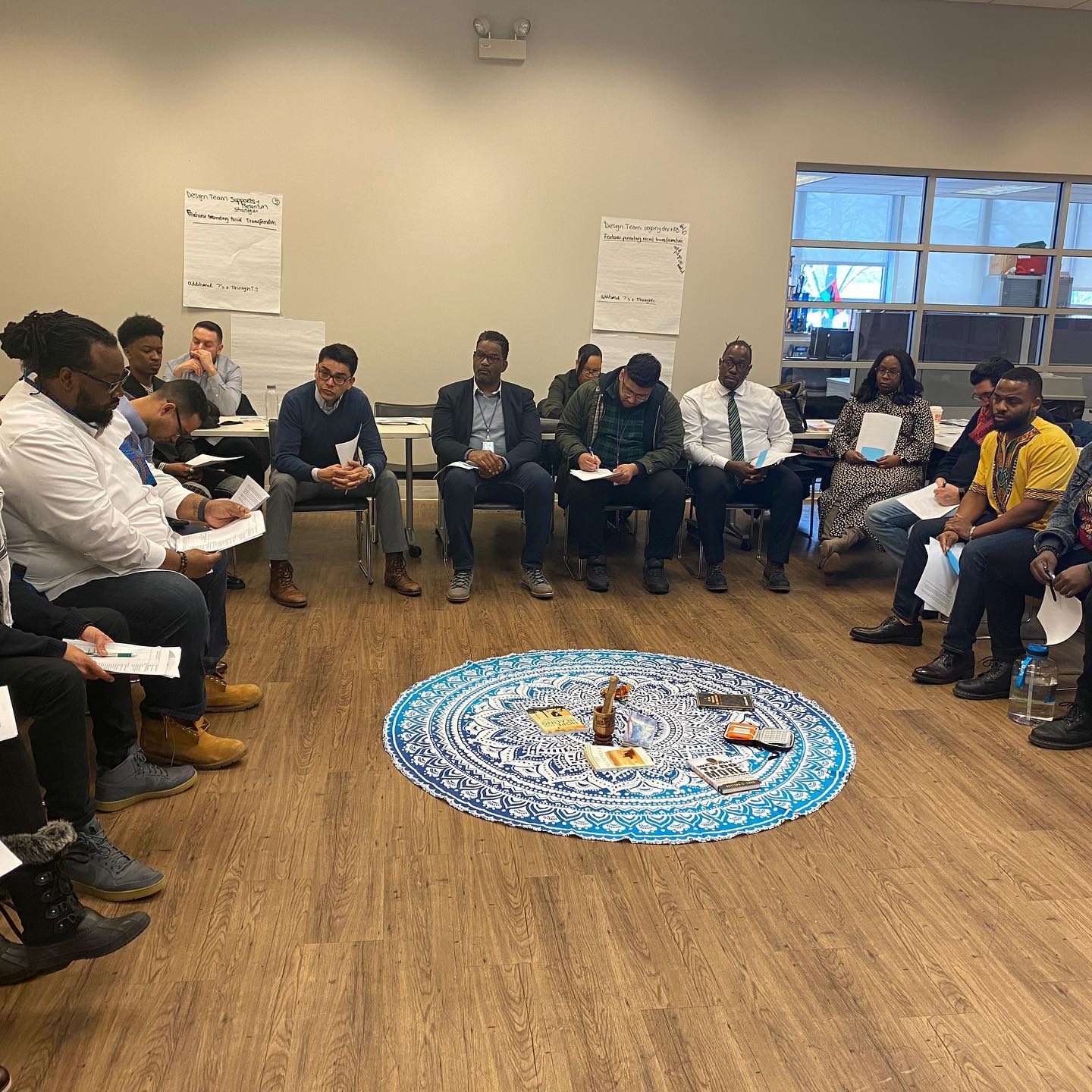

Community of Practice.
Collaborative for Health Equity Cook County
The Collaborative for Health Equity Cook County (CHE Cook County) works to change the maldistribution of money, power and resources that produces health inequities and gross injustice. We believe we can make that change by raising awareness, advancing policy, and building power among oppressed populations. To achieve health equity, we focus on the root causes of health inequities that are at the structural level of society.
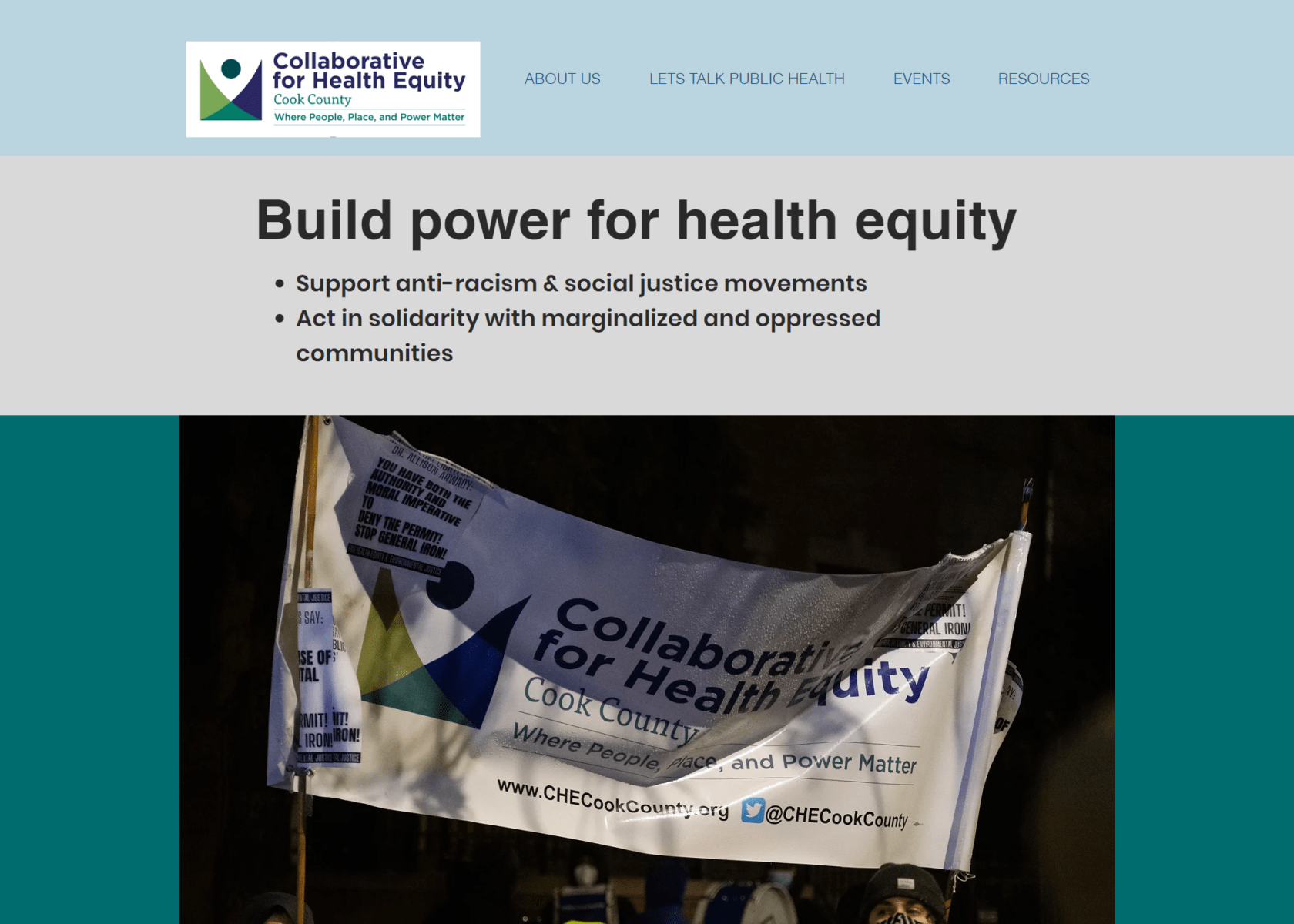
Latinx Racial Equity Project
Our work (HOPE’s and LREP’s) intersect in our commitment to promote health and increase racial equity disproportionately affected by COVID 19 communities.
As the HOPE data clearly shows, structural racism embedded in our society’s systems creates severe health inequities impacting tens of millions of BIPOC in this country. Latinx Racial Equity Project is tackling this core public health issue by training and developing a robust network of Latinx leaders to drive policy and systems changes that end health and racial disparities.
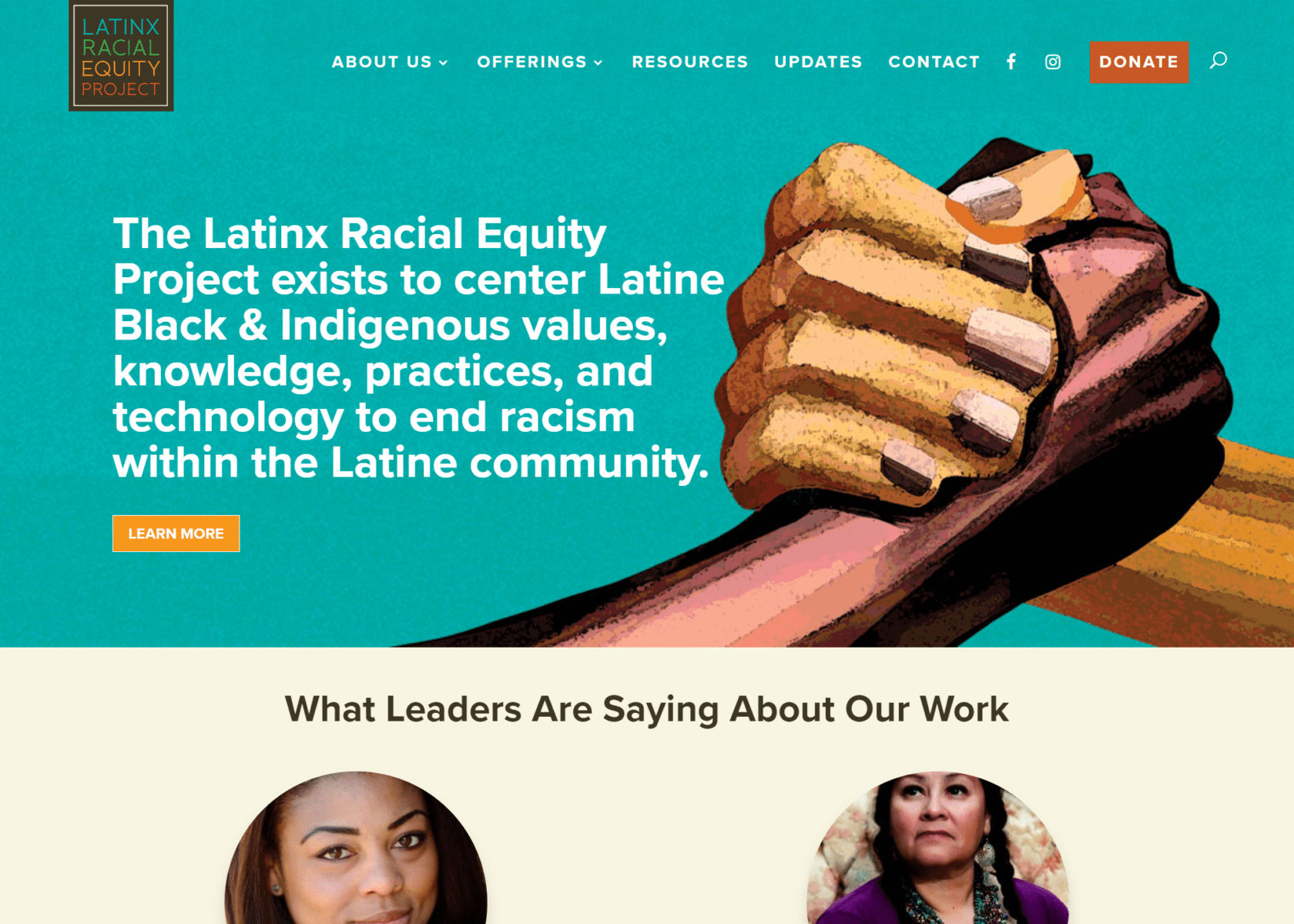
The Selma Center for Nonviolence, Truth & Reconciliation
The mission of the Selma Center for Nonviolence, Truth & Reconciliation (CNTR) is to partner with institutions to promote love, the establishment of justice, and build the Beloved Community. The Center is committed to transforming and healing the root causes of physical, political, psychological, environmental, economic and racial violence at personal, family, community and systemic levels.
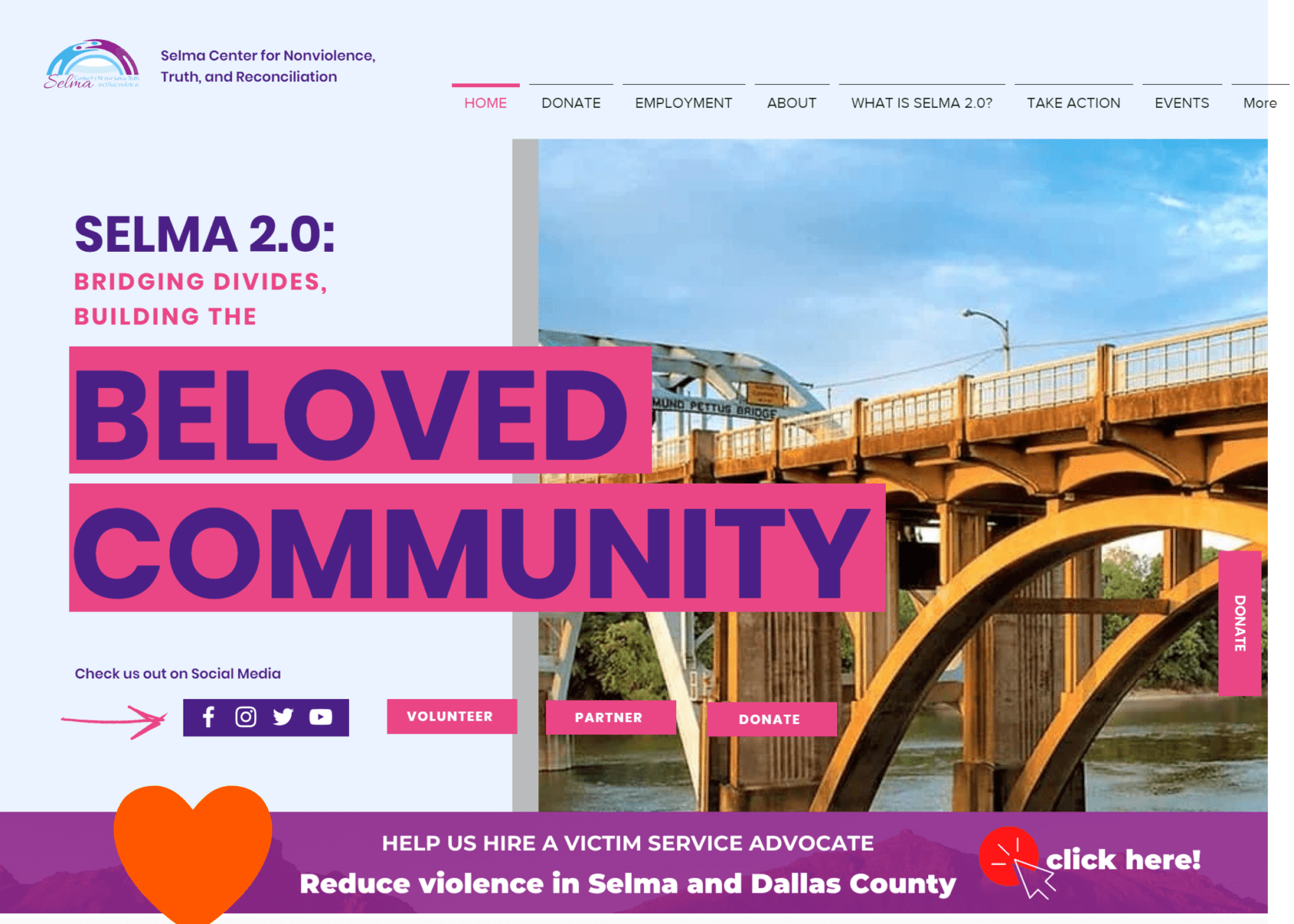
Louisiana Center for Health Equity
The Louisiana Center for Health Equity (LCHE) was created and established with the sole purpose of addressing health and healthcare disparities in Louisiana through the lens of health equity. One current example of our health equity work is our Campaign to Establish Louisiana Office on Women’s Health.
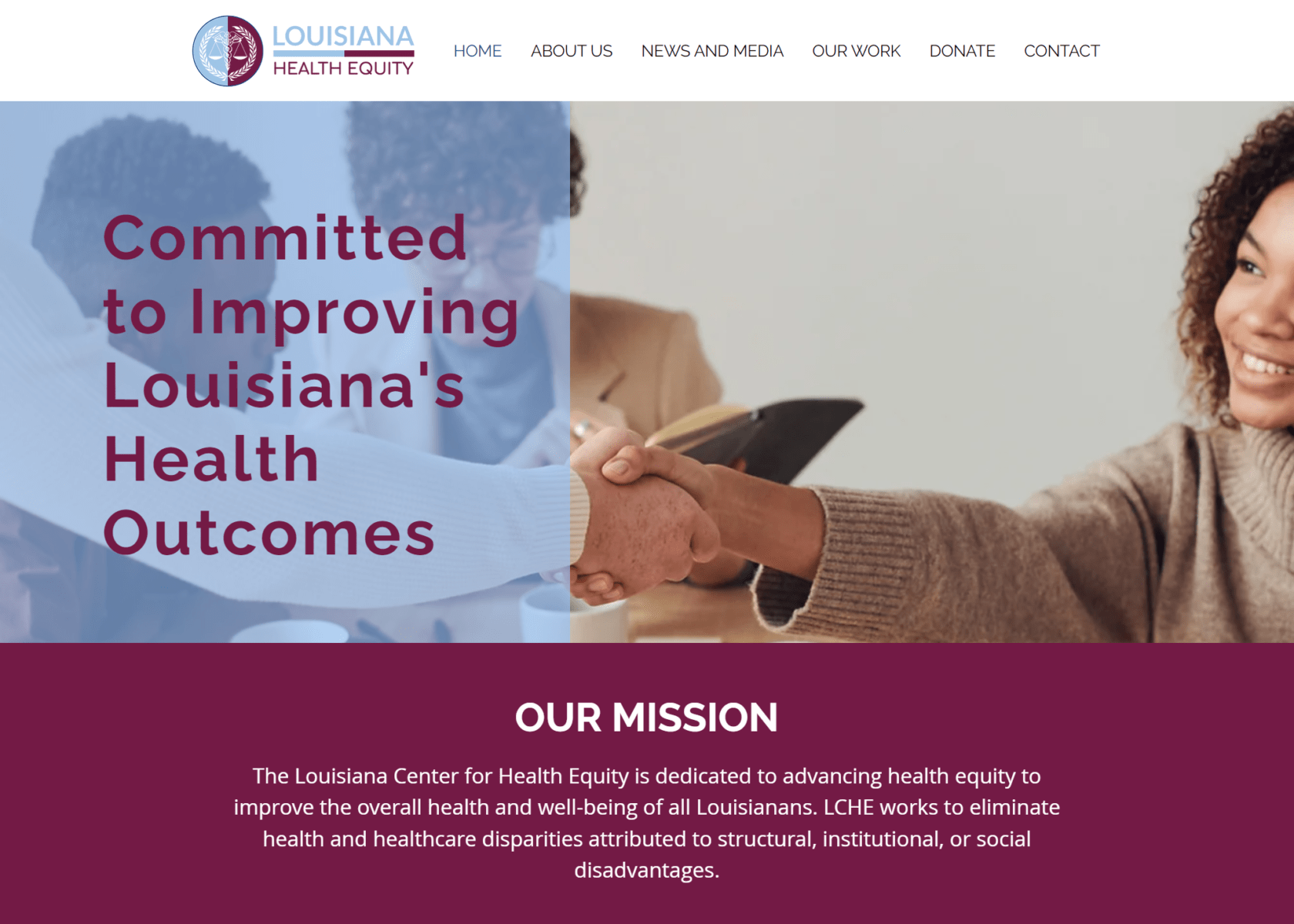
Equity Matters
Equity Matters is a network of innovators. Our work helps clients and communities evolve and change in a transformative way. We are a network of equity practitioners and we believe in communities of practice that support the culture of equitable development. We look at things through a social determinants lens addressing not just health, but well-being. We promote equity in all policy. Equity Matters offers a variety of supports and organizational strategies for getting voices heard and improving their impact in a group or community. Our team is comprised of experts from a variety of backgrounds who have the training and experience to develop and implement real change. We work in a racial equity framework that we call “counter-racism,” which stands on the shoulders of tradionally anti-racist practices, but adds complexity science practices as well.

One Love Global
One Love Global (OLG) is a 501c3 nonprofit organization with a mission to transform communities so Black children experience justice, peace, healing, opportunity, and abundance. OLG invests in youth organizing and community leadership development to build the individual and collective power needed to transform policies and practices. OLG is the place lead for Truth, Racial Healing & Transformation (TRHT) of Metro Lansing and has hosted teams for all five pillars with our deepest work being cross-cutting to center youth and education across the pillars.
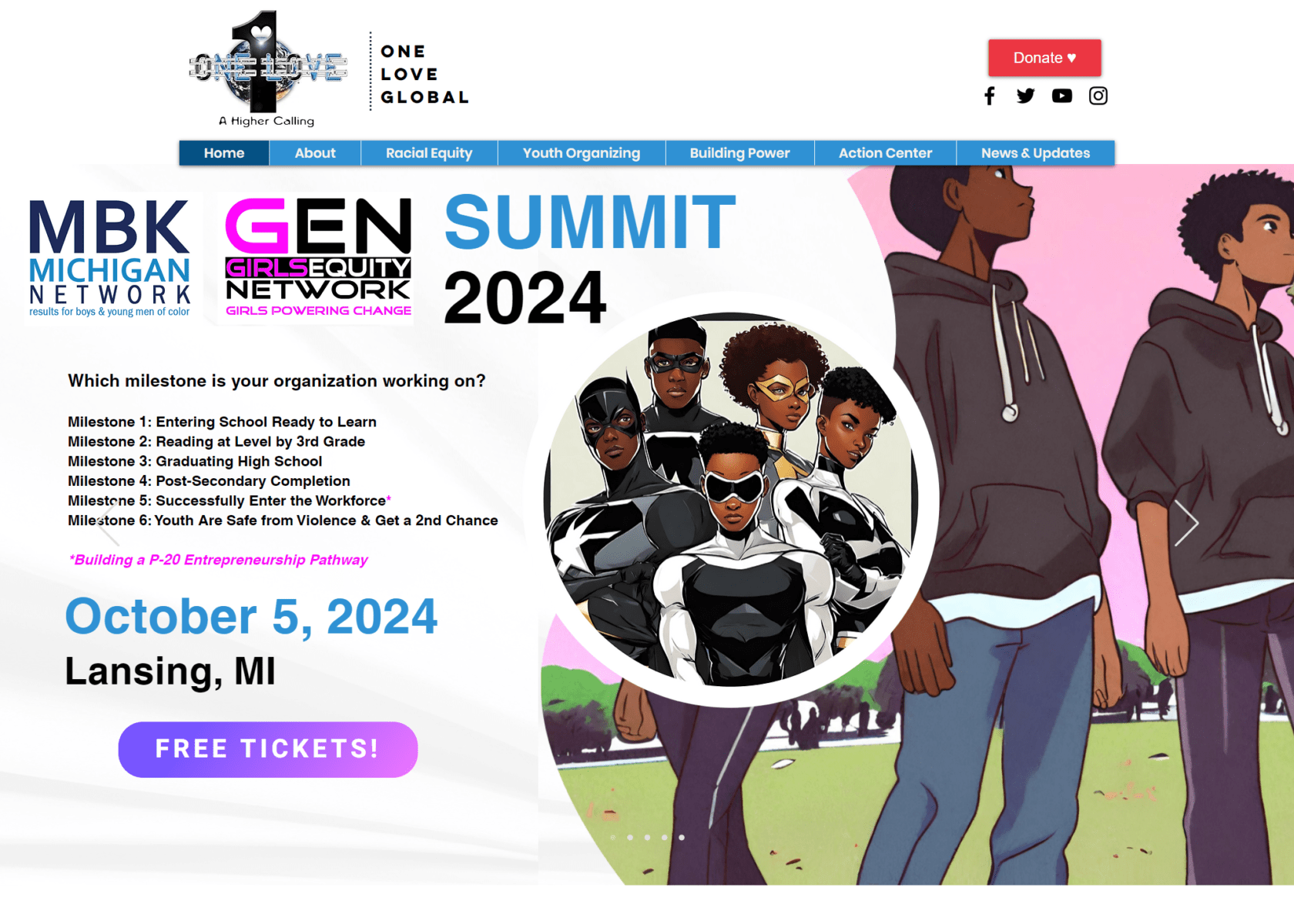
Neshoba Youth Coalition
I believe that your framework around health outcomes, and how those systems influence the health of local communities, align perfectly with NYC’s commitment to improve educational, health and economical opportunities for children and families in Mississippi by advancing racial equity and healing, leadership development and authentic community engagement that leads to positive and sustainable social change that improves the lives of vulnerable children and families.
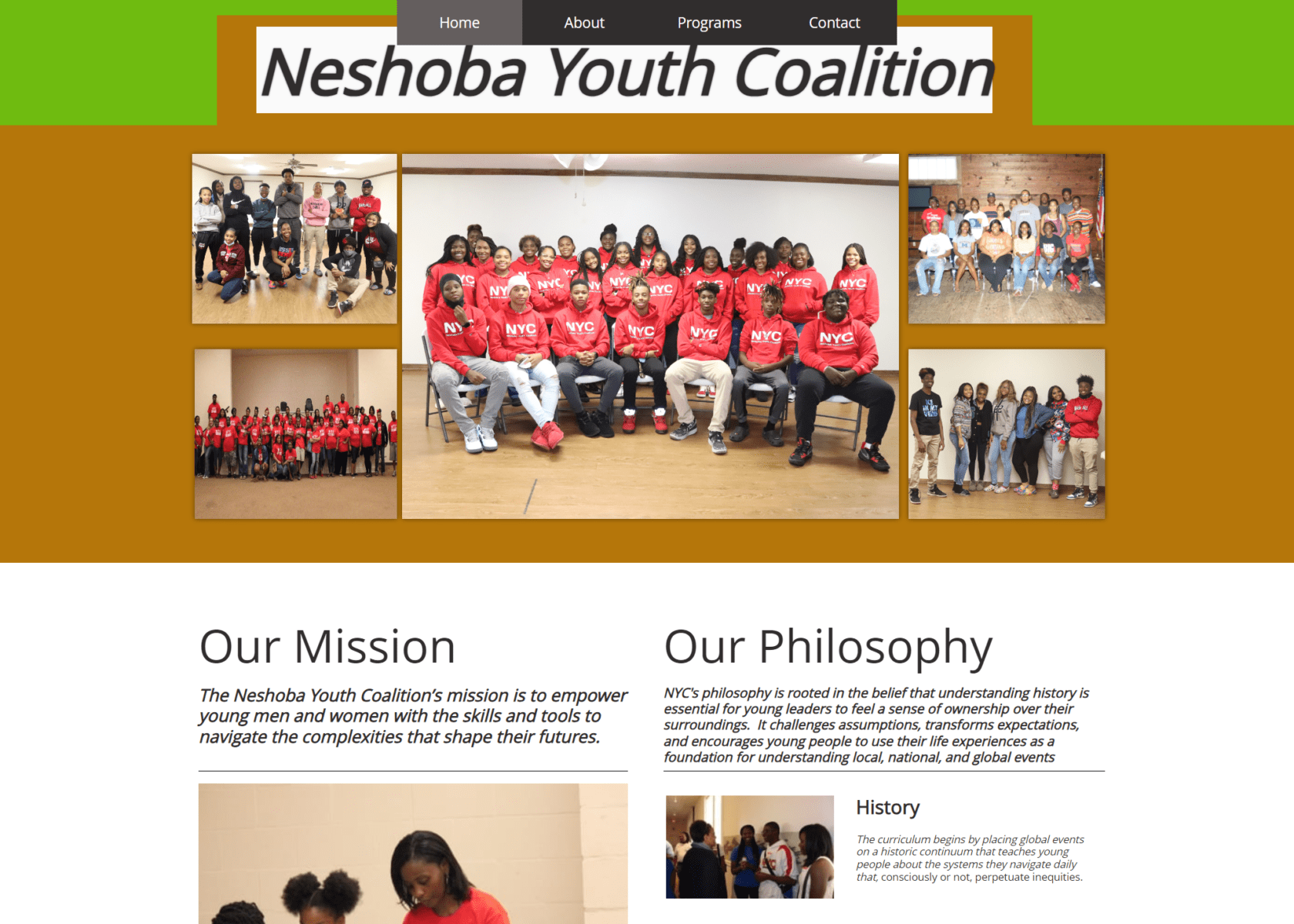
Partnership for the Public Good
Partnership for the Public Good is a community-based think tank that builds a more just, sustainable, and culturally vibrant Buffalo Niagara through action-oriented research, policy development, and citizen engagement, together with our network of 325 partner organizations. Before and since the COVID-19 pandemic began, we have worked to advance health equity programs and policies that protect tenants and improve housing conditions; that use public land, green space, and vacant lots for public benefit—such as food growing, affordable housing, community gardens; that expand language access for New Americans across government and health services; that improve water equity by ending water shut-offs in the City of Buffalo and forgiving water bill debt; that prevent violence and invest in community-led safety; and more.
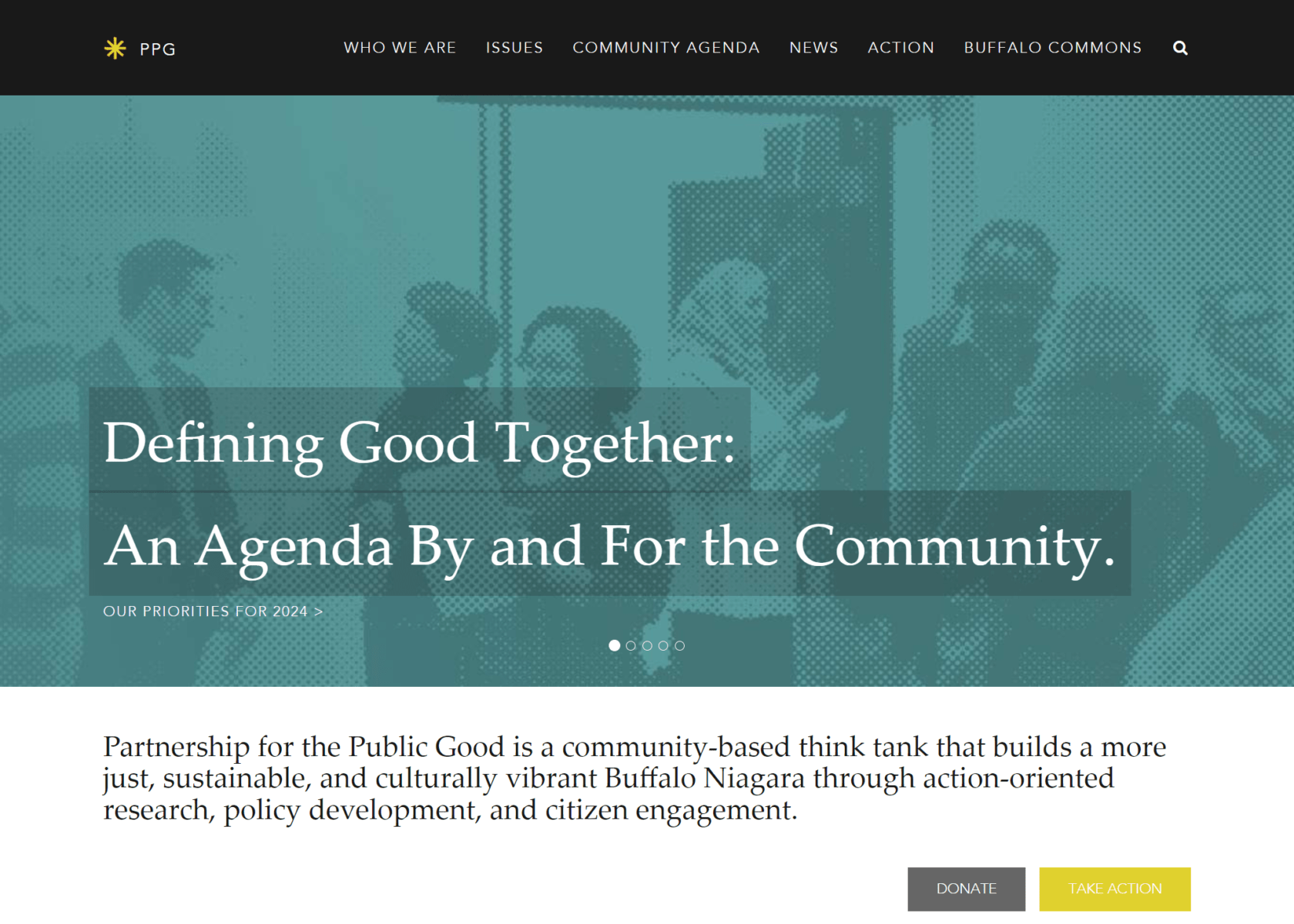
Center for Achieving Equity
The Center for Achieving Equity will engage all levels of community to ensure systems, structures, policies and practices create and sustain equitable opportunities for all.
The Center for Achieving Equity’s (CAE) focus is to ensure health implications and equity considerations are in the forefront as policy makers and others make decisions that substantially impact the residents of Cuyahoga County and the neighborhoods in which County residents live.
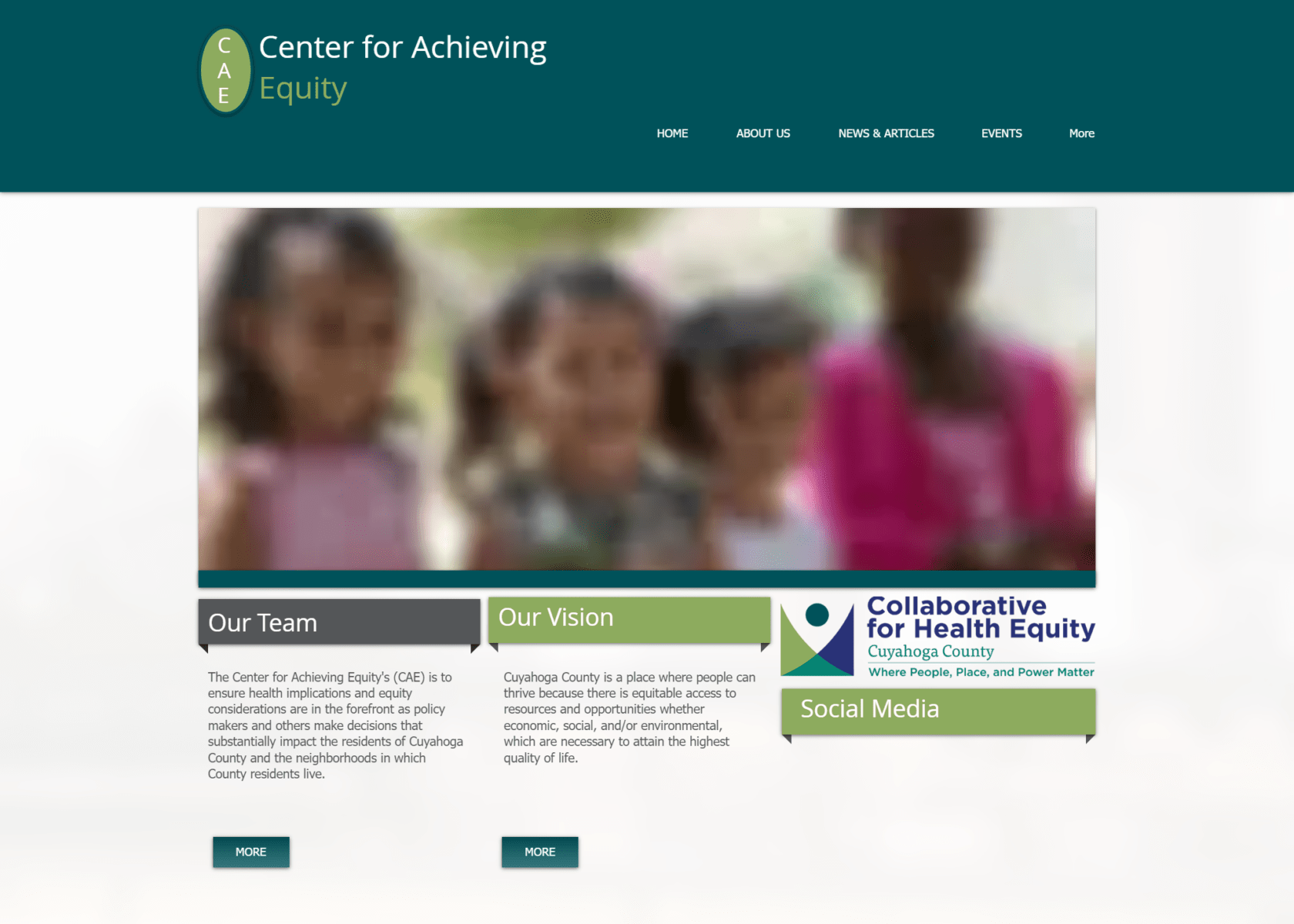
Health Equity Solutions (HES)
Our Vision: For every Connecticut resident to attain optimal health regardless of race, ethnicity, or socioeconomic status.
Our Mission: To promote policies, programs, and practices that result in equitable health care access, delivery, and outcomes for all people in Connecticut
The events of the past two years raised the visibility of racial inequities and catalyzed change. Now we must build on those early steps to move Connecticut further along the path to health equity.
In 2022 Health Equity Solutions’ 2022 Policy Agenda priorities are:
- Address barriers to health and community participation;
- Advocate for health care access and affordability; and
- Dismantle structural racism.

Featured Resources.
Additional Resources.
Our Other Programs.

